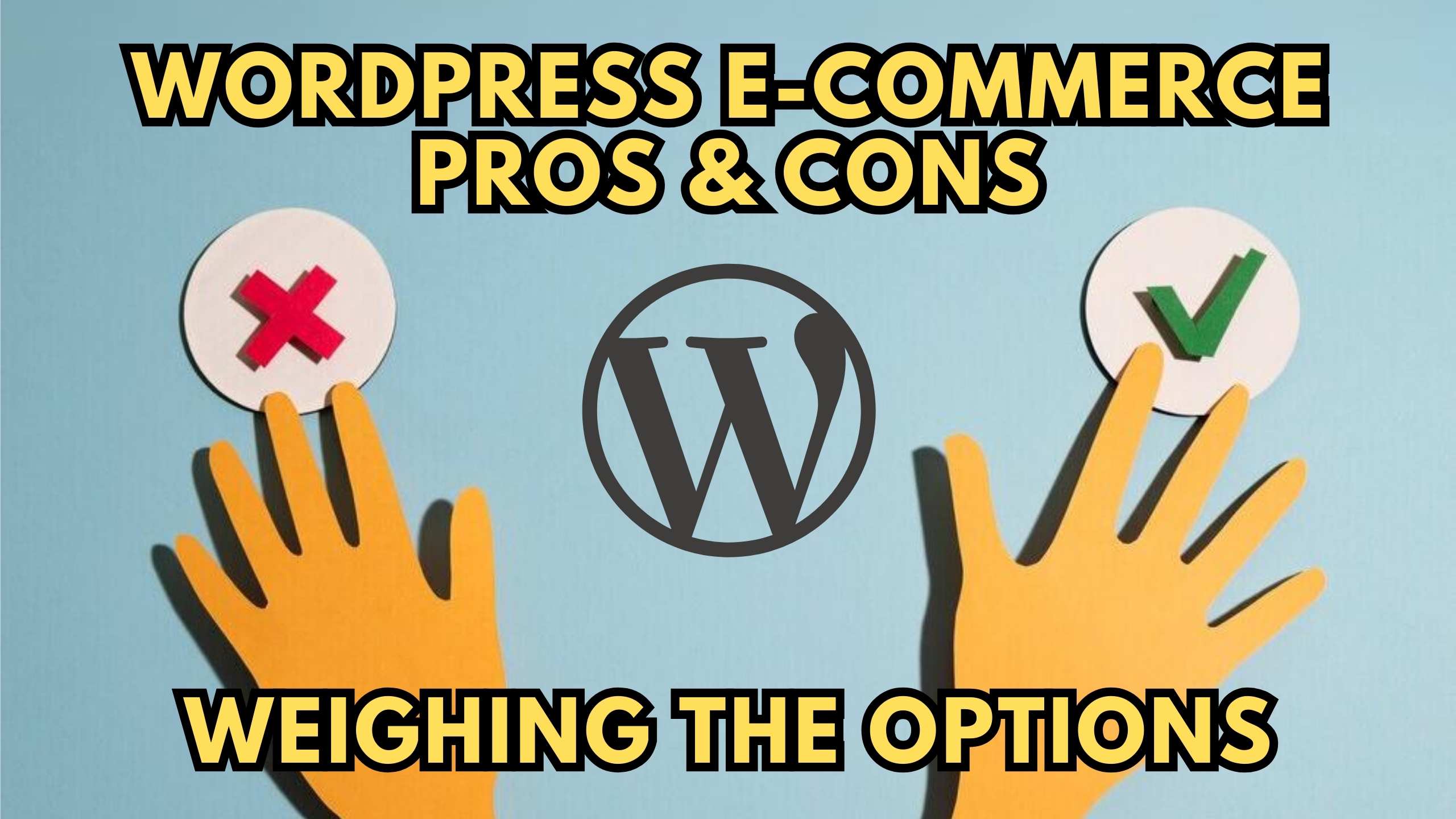WordPress E-commerce Pros & Cons: Weighing the Options


WordPress E-commerce Pros & Cons: Weighing the Options
WordPress has become a popular choice for creating e-commerce websites, offering flexibility and customization. However, like any platform, it comes with its own set of pros and cons. Let’s delve into the intricacies of using WordPress for e-commerce and explore the options available.
Pros of Using WordPress for E-commerce
1. User-Friendly Interface: WordPress’s intuitive interface makes it easy for even non-technical users to set up and manage an e-commerce site. With a plethora of themes and plugins, customization is at your fingertips.
2. Extensive Plugin Ecosystem: The vast WordPress plugin ecosystem allows you to enhance your e-commerce site’s functionality. Popular plugins like WooCommerce empower you to add features like product variations, discounts, and secure payment gateways.
3. SEO-Friendly Structure: WordPress is inherently SEO-friendly, helping your e-commerce site rank higher in search engine results. Customizable URLs, meta tags, and sitemaps contribute to better visibility.
4. Community Support: The large WordPress community ensures that you have access to a wealth of knowledge and support. Forums, blogs, and tutorials make problem-solving a breeze.
5. Cost-Effective Solution: Compared to some other e-commerce platforms, WordPress is often a more cost-effective option, especially for small businesses or individuals starting out.
Cons of Using WordPress for E-commerce
1. Performance Concerns: As your e-commerce site grows, performance can become an issue. Optimizing images, leveraging caching, and choosing reliable hosting are crucial to maintain speed.
2. Security Challenges: WordPress sites can be vulnerable to security threats if not properly managed. Regular updates, strong passwords, and security plugins are essential for safeguarding your online store.
3. Learning Curve for Beginners: While WordPress is user-friendly, beginners may find it overwhelming initially. Learning to navigate themes, plugins, and settings takes time.
4. Dependency on Plugins: Heavy reliance on plugins for specific functionalities may lead to compatibility issues, affecting site performance and security.
5. Limited Support for Complex E-commerce Needs: For enterprises with complex e-commerce requirements, WordPress might fall short. Specialized platforms may be better suited for handling intricate workflows.
Relevant SaaS Products for E-commerce
- Shopify: A leading e-commerce platform offering a seamless, all-in-one solution for online stores, including hosting, payments, and marketing.
- BigCommerce: Known for scalability, BigCommerce is a SaaS solution that caters to businesses of all sizes, providing advanced e-commerce features.
- Magento: Ideal for large-scale enterprises, Magento is an open-source e-commerce platform that offers high customization and flexibility.
- Wix eCommerce: Combining website building with e-commerce capabilities, Wix is a user-friendly option for those wanting an all-inclusive platform.
- Squarespace Commerce: With a focus on design, Squarespace Commerce provides a visually appealing and easy-to-use platform for online businesses.
Conclusion
In weighing the pros and cons of using WordPress for e-commerce, it’s essential to consider your specific needs and goals. While WordPress offers versatility, alternative SaaS solutions might better cater to complex requirements. Evaluate each platform’s features, scalability, and support before making a decision.
Take Action with Subscribed.fyi: Supercharge Your E-commerce Tools
Ready to optimize your SaaS subscription stack? Subscribed.fyi is your all-in-one solution, empowering freelancers and small teams to manage their tools effectively. Unlock exclusive deals and save big by signing up for free today at Subscribed.fyi Deals. Take control of your expenses, compare SaaS tools, and make informed decisions with Subscribed.fyi.
Relevant Links








